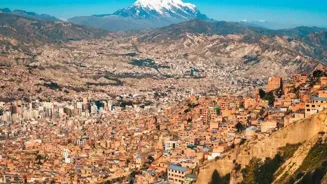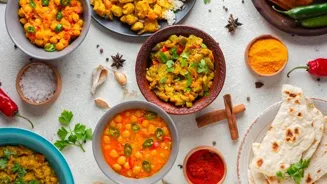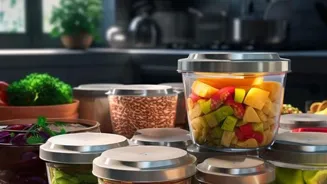Discover 7 Unique Ways to Celebrate Festivals Sustainably! Embrace eco-friendly festivities with these creative ideas
Festivals are the heart and soul of India. From Diwali's sparkling lights to Holi's
vibrant colors, each festival brims with joy and togetherness. But sometimes, our celebrations can take a toll on the environment. All the plastic decorations, food waste, and loud noises can harm our planet.
So, this festive season, let's pledge to celebrate in a way that's both fun and eco-friendly. Here are seven unique ideas to make your celebrations greener!
Ditch the Plastic, Embrace Natural Decorations:
Forget about those shiny, non-biodegradable plastic decorations that end up polluting our landfills. This year, go back to your roots and opt for natural alternatives. Decorate your home with marigold garlands, mango leaves, and banana leaves.
You can even create beautiful rangolis using natural colors made from turmeric, rice flour, and flower petals. These decorations not only look stunning but also add a traditional touch to your festive ambiance.
Plus, they decompose naturally after the celebrations, leaving no harmful impact on the environment. Get creative and try making DIY decorations from recycled paper or cloth scraps. Involve your family and friends in the process, making it a fun and eco-conscious activity together.
Remember, the beauty of a festival lies in its spirit, not in extravagant plastic decorations. Consider earthen diyas for lighting purposes, which are easily biodegradable and creates a traditional atmosphere for your prayers. It can later be dissolved or mixed with soil in the gardens.
Earthen Diyas, Not Chemical Crackers
Diwali, the festival of lights is synonymous with bursting crackers. While the loud booms and colourful sparks may seem exciting, they contribute heavily to air and noise pollution.
The smoke from crackers contains harmful chemicals that can trigger respiratory problems and affect the health of animals. Not to forget the immense amount of waste generated from burnt crackers. This year, let's say no to chemical crackers and light up our homes with earthen diyas instead.
Diyas are a traditional and eco-friendly way to illuminate our surroundings. You can decorate them with natural colours or paint them with beautiful designs. Encourage your children to participate in making the diya decorations, using their creativity.
Another great alternative to crackers is organizing community events with traditional music, dance, and cultural performances. This promotes togetherness and provides entertainment without harming the environment.
It’s important to educate children about the harmful effects of crackers and encourage them to celebrate Diwali in an eco-conscious manner.
The sounds and air pollution created by bursting crackers also contributes towards the stress of animals and old people, it is always beneficial to avoid bursting crackers.
Go Green with Gifting:
The exchange of gifts is an integral part of any festival. Instead of buying generic, mass-produced items, consider gifting eco-friendly and sustainable products. How about a potted plant, a handcrafted item made from recycled materials, or a set of organic skincare products?
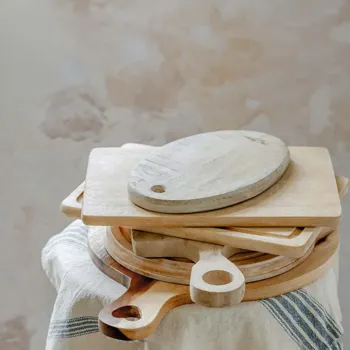
These gifts are thoughtful, unique, and demonstrate your commitment to the environment. You can also opt for experiences over material possessions, like a cooking class, a pottery workshop, or a donation to a charitable cause in the recipient’s name.
When wrapping gifts, avoid using glossy paper or plastic ribbons. Instead, use recycled paper, cloth wraps, or jute bags. These are not only eco-friendly but also add a personal touch to your gifts.
You may consider giving away dry fruits in reusable containers as festival gifts to friends and well wishers. Also, avoid unwanted gifts by asking beforehand - “Do you want a gift, if so what gift do you want?” This approach can save money and avoid wastage of products too.
Say No to Food Waste:
Festivals are often associated with lavish feasts and elaborate meals. While it's great to indulge in delicious food, it's important to be mindful of food waste. Plan your meals carefully and prepare only the amount of food that's needed.
Encourage your guests to take only what they can eat, and offer smaller portions to avoid wastage. Compost any leftover food scraps to reduce the amount of organic waste that goes to landfills. You can also donate excess food to local charities or shelters to help those in need.
When serving food, avoid using disposable plates and cutlery. Opt for reusable plates, glasses, and silverware to minimize waste. If you're hosting a large gathering, consider renting reusable tableware.
Remember, food is a precious resource, and we should all do our part to minimize wastage during festivals. Consider the amount of people and prepare the food accordingly to avoid wastage. It is okay to order food from outside, however, give importance to the amount that will be sufficeint.
Eco-Friendly Pooja Items:
During festivals, we perform various poojas and rituals that involve the use of flowers, fruits, and other natural items. Make sure to dispose of these items in an eco-friendly manner. Avoid throwing them into rivers or water bodies, as this can pollute the water.
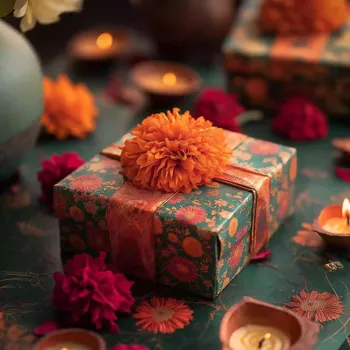
Instead, compost them or use them to make organic fertilizers for your garden. When buying pooja items, opt for natural and sustainable options. For example, use incense sticks made from natural ingredients and avoid using plastic idols.
You can also make your own pooja items at home using natural materials. For instance, you can create a Ganesh idol from clay and decorate it with natural colours. After the pooja, immerse the idol in a bucket of water or a pond that's specifically designated for idol immersion.
This way, you can perform your rituals without harming the environment.
Promote Community Celebrations:
Instead of celebrating festivals in isolation, why not organize community events that promote togetherness and environmental awareness? You can organize a tree planting drive, a cleanliness campaign, or a cultural program that showcases traditional arts and crafts.
These events not only bring people together but also raise awareness about environmental issues and encourage people to adopt sustainable practices. Involve local community leaders, schools, and NGOs in organizing these events to maximize their impact.
Encourage people to use public transportation or carpool to reduce carbon emissions. You can also organize a potluck where everyone brings a dish to share, reducing the amount of food waste.
Community celebrations are a great way to foster a sense of belonging and promote environmental responsibility.
Educate and Inspire Others:
The most important thing you can do is to educate and inspire others to celebrate festivals in an eco-friendly manner. Share your knowledge and experiences with your friends, family, and community. Talk about the importance of sustainability and encourage them to adopt eco-friendly practices.

Use social media to spread awareness about eco-friendly festival celebrations. Share tips, ideas, and resources that people can use to make their celebrations greener. Organize workshops and seminars to educate people about the benefits of sustainable living.
By educating and inspiring others, you can create a ripple effect that leads to a more environmentally conscious society.
By following these seven unique ideas, you can celebrate festivals in a way that's both fun and eco-friendly.
Let's make this festive season a time for joy, togetherness, and environmental responsibility. Happy celebrating or Happy Festivals.
AI Generated Content. Glance/InMobi shall have no liability for the content




